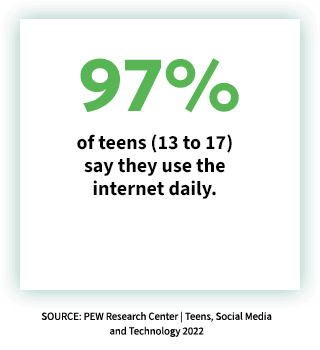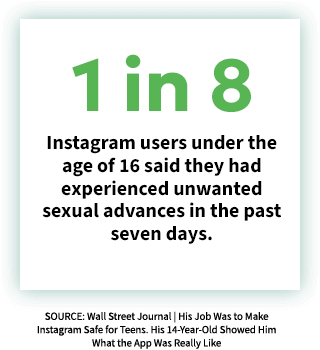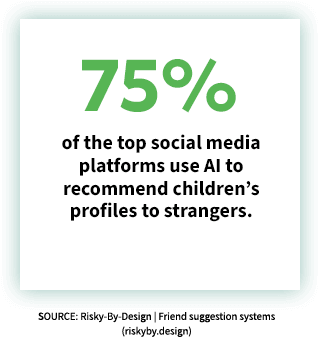
A safer online world is possible:
Support the
Vermont Kids Code



Kids and teens deserve online platforms designed for them.
Every day children are using a digital world that is designed by and for adults, where they are nudged to give up their privacy, addicted and deceived by designs meant to keep them online longer, and exposed to risky contacts and behaviors. While we test cribs and car seats and put nutrition labels on foods, the internet has never had product safety testing for children and teens, despite the overwhelming evidence that social media is addictive and harmful to kids. It doesn’t have to be this way.
Bold landmark legislation in the Age Appropriate Design Code, otherwise known as the “Kids Code,” is a consumer protection bill that requires common sense practices of privacy and safety from the start to ensure that the digital world where kids play is designed age appropriately.
The Age Appropriate Design Code has been in effect in the UK for two years and has compelled Big Tech to change the designs of their products to put kids’ best interests first. The legislation has already been signed into law in California and Maryland, and introduced in many other states. Already unanimously passed in the Vermont General Assembly, Governor Phil Scott now has the opportunity to sign this legislation into law as a testament to Vermont’s unwavering commitment to our youngest citizens and their wellbeing in the digital world.
What is the Kids Code?
The Kids Code is a consumer protection bill that would require online products reasonably likely to be accessed by children under 18 to be age-appropriate, institute privacy by design and default, and be designed with kids’ best interests.
The Kids Code was introduced in Vermont following the most comprehensive legal challenge to social media’s impact on the health and well-being of children to date in the US. Together, 41 states, including Vermont, have sued Meta for intentionally designing addictive and harmful products. The Kids Code would address the extractive practices outlined by Vermont Attorney General Charity Clark in the Vermont lawsuit, including the use of extortive privacy practices and the use of addictive features such as infinite scroll and autoplay.
How it Works
Fact Sheet
Impact of the AADC
Parents, young people, teachers, medical professionals, join us in fighting for a better online future.
Add your name to support the Vermont Kids Code
Video Testimonials
Quotes from Vermonters
Press Releases
News
Supporting Organizations



















